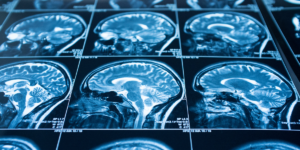The American Association for Artificial Intelligence has elected six new fellows – and two of them are from the USC Viterbi School of Engineering.
“Each year,” reads the organization’s description of the honor, “a small number of AI researchers are recognized by their peers for their unusual distinction in the profession and for their sustained contributions to the field for a decade or more.” This year, USC’s Craig A. Knoblock and Gérard G. Medioni made up one-third of the “small number.”
This year, USC’s Craig A. Knoblock and Gérard G. Medioni made up one-third of the “small number.”
 “This is still another indication of the depth and excellence of the USC Viterbi School’s computer science program,” said Dean C.L. Max Nikias. “I congratulate them both.”
“This is still another indication of the depth and excellence of the USC Viterbi School’s computer science program,” said Dean C.L. Max Nikias. “I congratulate them both.”
Medioni (left) is professor and chair of the department of computer science at the USC Viterbi School. He is a specialist in computer “understanding” of visual images. His work has applications in such diverse areas as techniques to superimpose objects into live video – such as the virtual first-down lines seen in football broadcasts – and ways to recognize human faces and other objects, and to create 3-D representations from 2-D images.
A Fellow of IEEE and IAPR, he is the author of 2 books, and more than 50 journal papers and 200 conference presentations.
 Knoblock (right) is a senior project leader at the USC Viterbi School’s Information Sciences Institute in Marina del Rey, California, a research associate professor in the USC Viterbi School department of computer science, and chief scientist of Fetch Technologies.
Knoblock (right) is a senior project leader at the USC Viterbi School’s Information Sciences Institute in Marina del Rey, California, a research associate professor in the USC Viterbi School department of computer science, and chief scientist of Fetch Technologies.
He is an expert in methods for information extraction and integration, including particularly the use of planning, machine learning, data mining, and information agents to perform these functions.
The two scientists will be honored at the AAAI annual fellows dinner July 27 in San Jose.
“Founded in 1979,” says the description on its Web site, “the American Association for Artificial Intelligence (AAAI) is a nonprofit scientific society devoted to advancing the scientific understanding of the mechanisms underlying thought and intelligent behavior and their embodiment in machines.
“AAAI also aims to increase public understanding of artificial intelligence, improve the teaching and training of AI practitioners, and provide guidance for research planners and funders concerning the importance and potential of current AI developments and future direction.”
Published on April 21st, 2004
Last updated on August 9th, 2021











